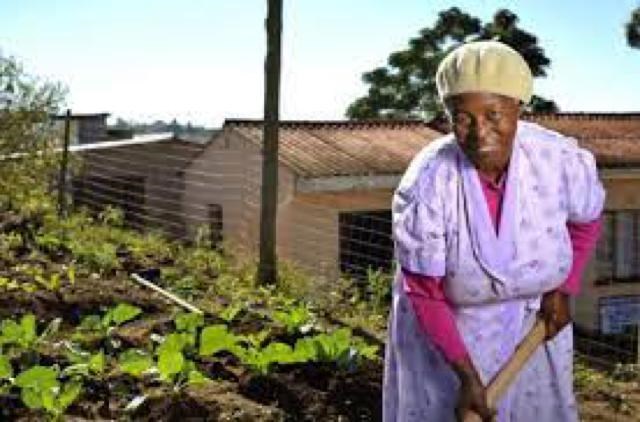Weyburn Rotary Club members heard a presentation via Zoom about the 1,000 Survival Gardens project helping impoverished families in South Africa, with clubs in Canada combining their efforts with clubs in South Africa.
The information was provided by Gary Dawyduk of the Winnipeg Rotary Club, and Rob Campbell of the Durban Rotary Club in South Africa.
The project arose as a response to a concern voiced by the United Nations Food Agency, which warned that a combination of COVID and drought may lead to multiple famines in Africa, including in the region of South Africa where this project is centred.
The project seeks to provide kits to 1,000 families or village compounds in a region known as the “Valley of 1,000 Hills”, that will enable them to seed, water and harvest vegetables for their families.
Each kit includes a “hippo roller” for water, along with a shovel, rake, hoe, watering can, seeds, fertilizer, an illustrated growing guide, soap and sanitizer, and is worth the equivalent of $250 Canadian. Currently, the Winnipeg club will match donations of kits made through their club.
The presentation included an explanation of the “hippo roller” and why this is such a crucial part of this kit.
Gary Dawyduk of the Winnipeg Rotary Club explained that in remote rural areas like this one, there is no running water available to residents, and they have to get fresh water from streams, sometimes requiring a long walk with a heavy 20-litre bucket every day, sometimes several times a day.
“Mainly the task falls to women and to girls, and you can imagine that access to water depends on many things, such as how far away it is. The commitment of time can be heavy,” he said. “It keeps mothers out of their families and households, and girls out of school. There are physical problems that happen by putting the bucket on your head, on neck, your back and to your hips, and so on. It depends also on the time of year. A water source may not be close by, or it might be at the bottom of a steep ravine.”
The “Hippo Roller” is a polyethylene barrel with a handle that rolls on its side, and can hold the equivalent of five times the amount of one bucket or 90 litres of water. Invented in Johannesburg, it can roll over most any kind of terrain, and can transport water in a much less stressful way than with a bucket, said Dawyduk, who noted this enables girls to stay in school rather than being needed to carry water for their families every day.
This roller, along with the basic tools and seeds provided in the kit, enables a family to establish and water a garden that can feed their family, he added.
It also helps families where single moms are raising the children, or where “go-gos” are raising children who were orphaned by the AIDS epidemic. There are estimates that as many as 1.2 million children were orphaned by this epidemic — and that was prior to COVID-19 and its impact on Africa.
A partnership of Rotary Clubs, including from Winnipeg and Gibsons, B.C., with clubs in Durban and Hillcrest in South Africa, along with other groups like the Hillcrest AIDS Centre Trust (HACT), have combined their efforts and resources to make the kits available, with the goal to provide 1,000 kits to the families in the Valley of 1,000 Hills. Altogether there are 71 clubs in 30 communities in this region involved in the project, explained Rob Campbell of Durban, and they have partnered with a national chain of hardware stores that is widely available in South Africa.
So far, said Campbell, they have distributed some 200 kits to families, with more on the way.
“Our grannies are very resourceful and they come up with all sorts of ideas and projects that they want to get going themselves,” he added, noting they have started their own seedling facility to help provide seedlings for these kits.
“This is a project that’s about water, food and it’s also about women. It involves young girls, adult women and go-gos, and they’re as much a part of this project as anything else,” added Dawyduk.



